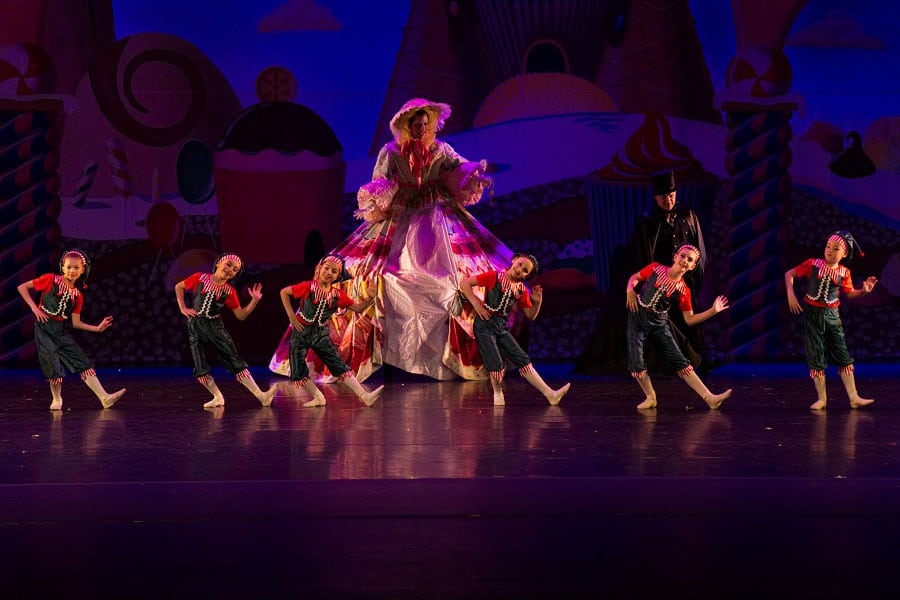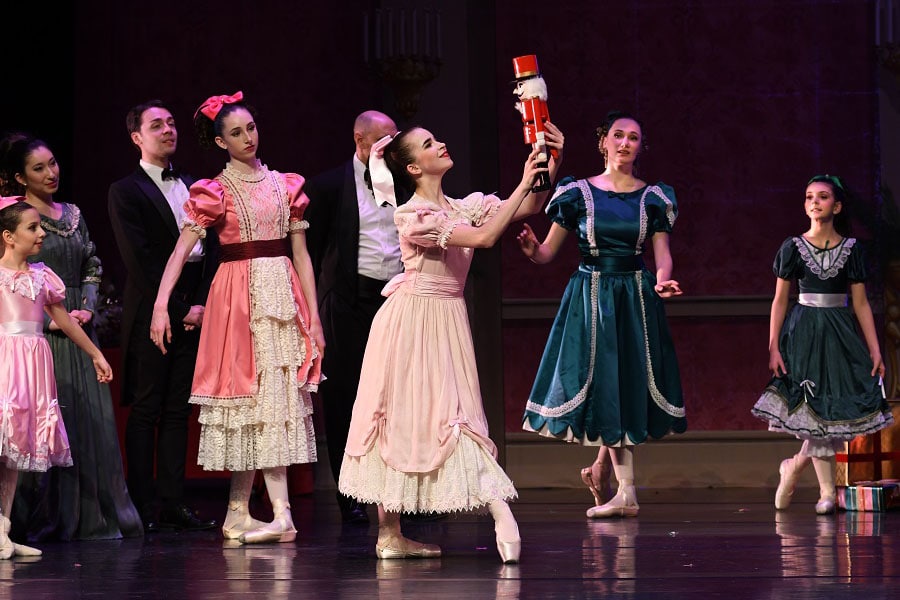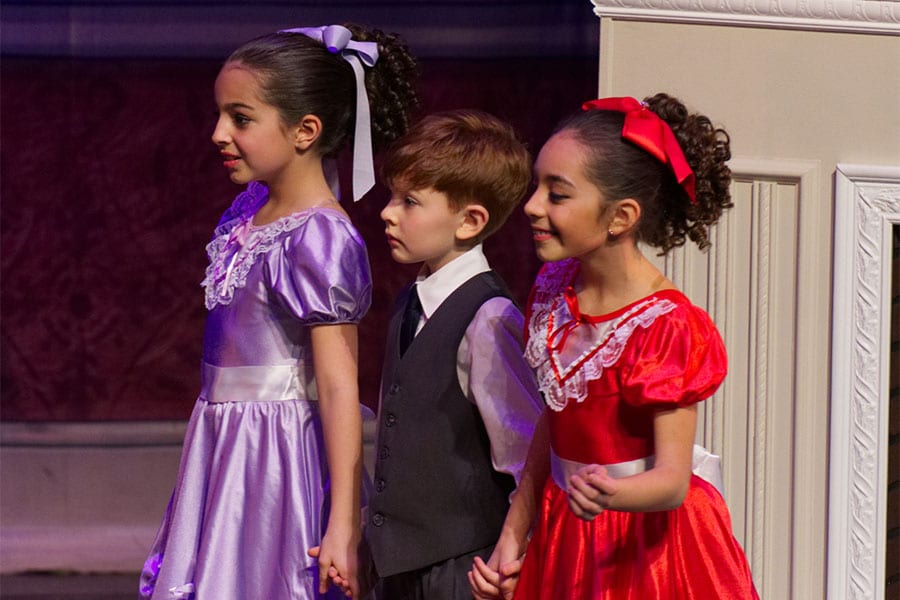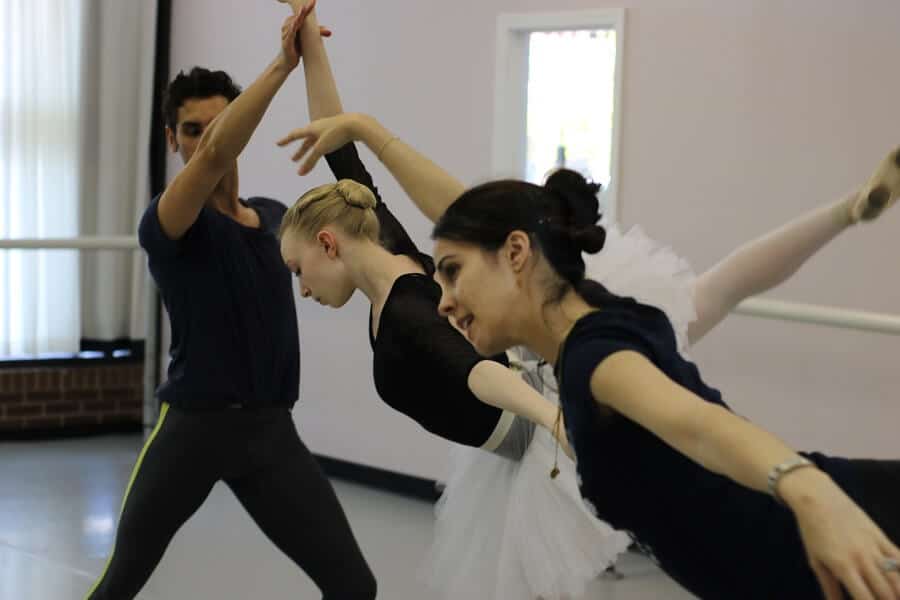The Nutcracker has become the most frequently performed of all ballets and has served as an introduction to classical ballet and music for many young people. We wanted to highlight and share with you the importance of performing in the Nutcracker and why performance, in general, is so important for the development of a dancer.
The Nutcracker give the students the opportunity to work together as a class, learn a routine, practice memorization techniques, follow directions and display the talents they have developed over time during weekly classes. As a student, performances are the most exciting time, as students get to be on a real stage and perform along professional principal dancers. They get to share this exiting time with their parents, relatives, and friends. For the young dancer, it is really a time to shine and show everything they have accomplished during their training in class. Performing in stage has other great benefits like:
Confidence
Performing in front of an audience gives students a great advantage over other children when it comes to personal confidence and controlled expression of emotions. Girls, in particular, sometimes struggle to “find their voice”. Through dance, young dancers learn communication through movement and motion, with physical confidence and discipline. Participating in a scheduled performance helps develop self-esteem, self-control, self-motivation, patience and a desire to set goals and succeed.
Performing can also help bring a shy student out of their “shell.” Young dancers develop a deep sense of pride in their work, which can carry over into other areas of a child’s life. Dancing is a passionate experience; students feel more open to express themselves through movement and patterns. Having passion for something at a young age teaches children care deeply for their work and directly demonstrates what it takes to do a good job at something you care about.

Producing Poise
The experience of performing helps a child learn to feel comfortable with being themselves and at ease in front of a group of observers. This can translate into many aspects of a young child’s life, which can be tremendously helpful when faced with other situations in school, social situations or with peers.
Increased Intelligence
There is evidence to support the fact that being involved with dance can improve intelligence. Learning new skills and routines (like you do for a performance) encourages a child’s general knowledge and vocabulary. It is similar to learning a new language! But this language involves their entire being. Students come to class to practice the words, phrases, and punctuation of dance. But it is through performance that they actually engage, as they are linguists of a performance art. They are speaking the language to an audience.
Each dance discipline offers a different perspective. Whether the class is ballet, pre-ballet or jazz, the student discovers something unique in the language and a new way to express themselves. As parents, we encourage our daughters and sons to embrace new experiences, discover more about themselves, and develop new skills and talents towards a larger goal. For dance, performance is the goal. All the hard work from practice comes together, as dancers execute their language as individuals and as a group. This is unique to the “performing arts”; without performance, the language would not thrive. Beyond this, students love to dress in their costumes and demonstrate their mastery of the art!



